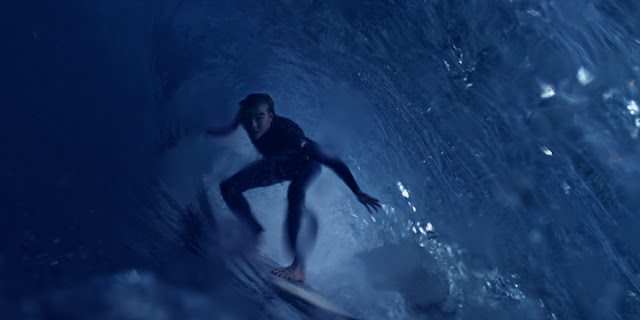BFI LFF 2017 - THELMA - Dir. Joachim Trier
A father and his daughter Thelma walk across a frozen lake; she pauses momentarily to watch the silvery fish slinking through the icy water below. Later, a fawn crosses their path; the father raises his rifle to shoot, but turns it towards his daughter just ahead of him. He holds his aim but can’t bring himself to pull the trigger.
It’s a brilliant opening – one of the year’s best – to Norwegian director Joachim Trier’s fourth film Thelma, his first foray into genre cinema. It’s unsettling and gives Trier a blank canvas on which to map out his chilling sci-fi drama; the unexpected should be expected at every turn.
Years later, Thelma (Eili Harboe) has moved away from her parents for the first time in her life to study at university in Oslo. She takes tentative first steps into the wilder world of young adulthood but begins to suffer from seizures that she hides from her parents Trond (Henrik Rafaelsen) and Unni (Ellen Dorrit Petersen) who still want to feel a part of every aspect of their daughter’s life.
Much like Trier’s 2011 film Oslo, August 31st, Thelma is a story driven by its central character’s loneliness. She’s naturally shy and, like so many people in their first few weeks of university, she allows the fear of missing out to take hold. She sees others making fast friends amidst the rush of being away from home for the first time and feels only more alone, but she also lacks the hindsight to know that some aren’t suited to the forced socialising of these early times and most eventually find their own crowd.
Thelma soon meets fellow student Anja (Kaya Wilkins) and their mutual admiration develops into a more intimate longing for each other. Harboe brilliantly conveys the conflict between her growing desire and her strict Christian upbringing; a conflict no more fleetingly encapsulated than in a look towards a gay couple, which falls somewhere between a timid glance and a wishful stare, whilst having dinner in a restaurant with her parents. Whenever Thelma shows even the briefest hint of rebellion, Trond puts Thelma back in her place – or rather his idea of what her place should be. Ironically, it’s this fear of being reprimanded that opens up the path to the truth about her seizures and finding her true place.
Trier’s handling of the supernatural and psychological elements of the story is thoughtful and restrained. Thelma’s seizures are very carefully placed at moments when her burgeoning desires directly contradict her strict religious upbringing, but there’s no discernable pattern to the psychokinetic effects that accompany them, which allows a sense of unease to pervade the drama. The thrills are delivered in short and sharp spikes of tension, rather than protracted sequences.
In the film’s second half, Thelma begins to piece together elements of her past and present, and she eventually comes to realise that there is only one way out of her predicament. The nuances of the struggle that Trond and Unni have had to endure in raising Thelma are subtly drawn out; both care deeply about their daughter but Unni’s interference in Thelma’s life is more innocent and overprotective, whereas Trond’s is more controlling and pernicious.
THELMA played at the 61st BFI London Film Festival and was released in UK cinemas on 3rd November 2017.






Comments
Post a Comment